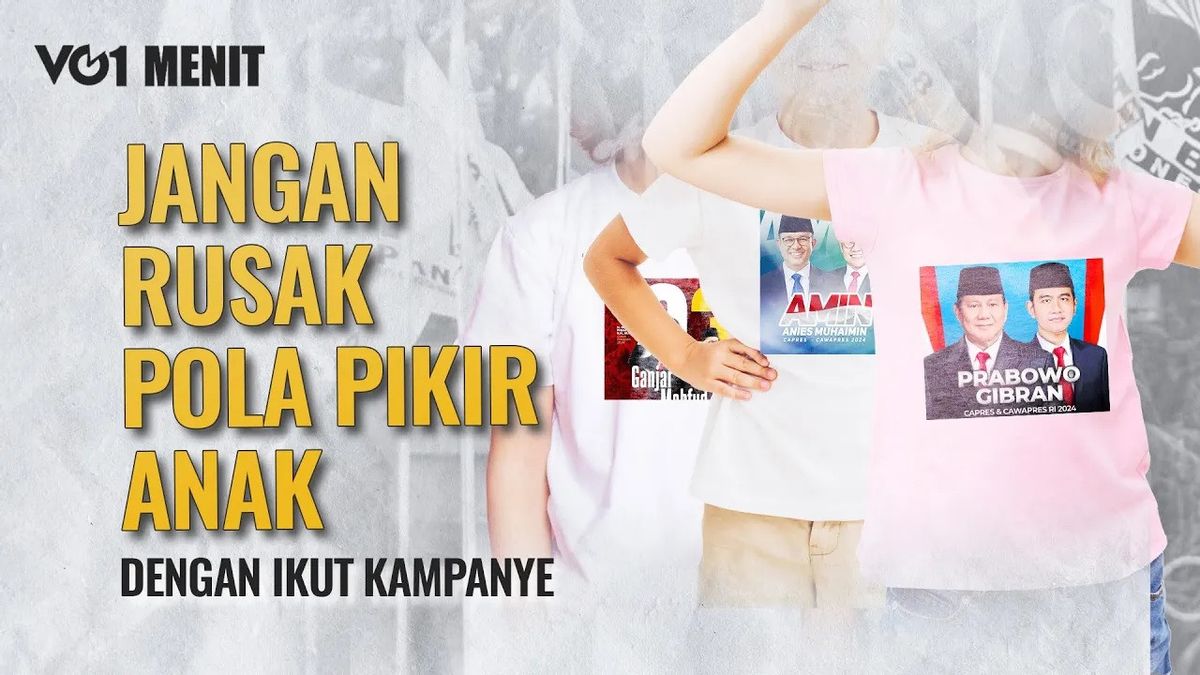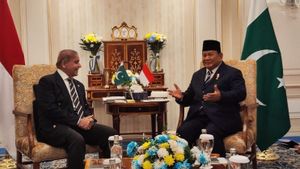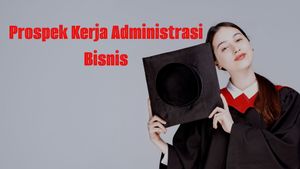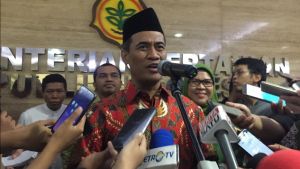JAKARTA - Ahead of the 2024 presidential election campaign on November 28, 2024, exploitation of children in the political year is still a worrying issue. Not only during the campaign period, children are often exploited until the election is completed at previous democratic parties.
The Indonesian Child Protection Commission (KPAI) revealed that activities involving children in campaigns are a violation of children's rights. Sadly, this has been going on since the 2014 and 2019 elections and elections. Ideally, the campaign was carried out honestly, openly, in an orderly manner so as to create a safe and peaceful democratic party.
Instead of creating a soothing political climate, the moment of the election is actually a matter of division because differences in choice are not handled wisely. Various forms of campaign material such as propaganda, agitation, bad stigma to hoaxes can certainly damage the development of children's emotions and mentality. Coinciding World Children's Day which falls on November 20, the Minister of Women's Empowerment and Child Protection (PPPA) Bintang Puspayoga invites all parties to protect the implementation of child-friendly elections next year.
Meanwhile, Article 16 of Law Number 10 of 2016 and Article 280 of Law Number 7 of 2017 concerning Elections strictly prohibits the involvement of children and people who do not have the right to vote. KPAI noted that there were 15 forms of exploitation and violence against children during the campaign period with various modes varied. Starting from misuse of children's playgrounds, child care, to educational places for campaign activities.
In addition, children are also often 'used' as campaigners to elect candidates for legislative members, presidents or certain political parties through advertisements. In fact, it is often found that children use political attributes or become a tool for political practice of money by political parties and regional head candidates. Chairman of the Indonesian Child Protection Agency (LPAI) Seto Mulyadi also emphasized that learning politics for children does not need to go through campaigns. It could be through the election of the head of the school which was decided with the most votes.
Unfortunately, the Constitutional Court decided not to ban political campaigns in educational places last August. Indeed, political awareness and active participation among the younger generation are needed. But this has the potential to be bad, such as horizontal conflicts to bullying that threaten harmony in the school environment.
In fact, differences in political views are commonplace. Now bad campaign content is what damages people's and children's mindsets. So, stop involving children in the campaign process! watch the video below.
The English, Chinese, Japanese, Arabic, and French versions are automatically generated by the AI. So there may still be inaccuracies in translating, please always see Indonesian as our main language. (system supported by DigitalSiber.id)













